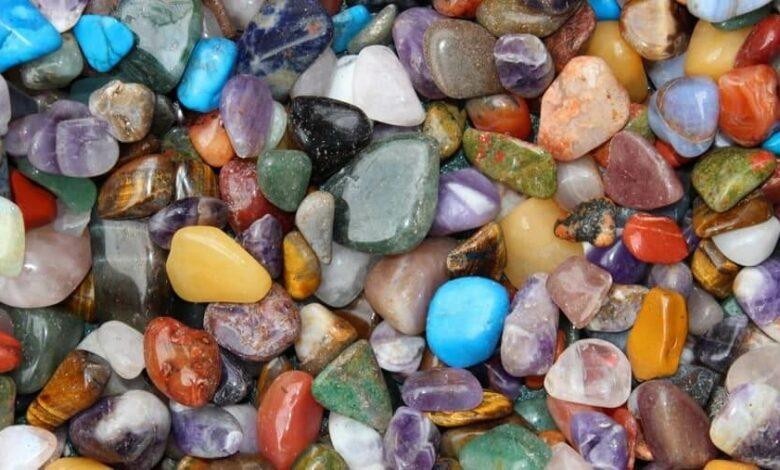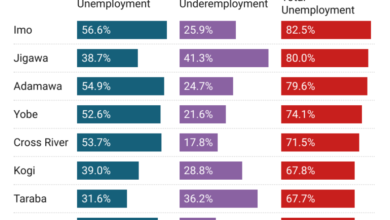
Top 15 Natural Resources that Contribute to Nigeria’s Wealth
Top 15 Natural Resources that Contribute to Nigeria’s Wealth – This article delves into Nigeria’s top 15 natural resources that have played a crucial role in the country’s economic prosperity. Nigeria, being one of the largest countries in Africa, is blessed with a wide range of natural resources that contribute significantly to its wealth. From the abundant reserves of oil and gas that have been pivotal in driving the economy to valuable minerals such as coal, iron ore, limestone, and gold, Nigeria’s resource base has attracted foreign investments, generated substantial revenue, and provided employment opportunities. These resources have had a profound impact on sectors like energy, construction, manufacturing, and agriculture, shaping Nigeria’s economic landscape.Top 15 Natural Resources that Contribute to Nigeria’s Wealth
The top 15 Natural Resources that Contribute to Nigeria’s Wealth Are:
1. Oil and Gas:
Oil and gas, being the foremost natural resource in Nigeria, have transformed the country into a major player in the global energy market. With substantial reserves in the Niger Delta region, Nigeria has consistently ranked among the world’s largest oil producers, attracting foreign investments and generating considerable revenue through exports. The revenue derived from oil and gas exports has played a crucial role in supporting various sectors of the economy and funding developmental projects.
👉 Relocate to Canada Today!
Live, Study and Work in Canada. No Payment is Required! Hurry Now click here to Apply >> Immigrate to CanadaRead Also: Top 15 High-Quality Interior Paint in Nigeria
2. Coal:
Coal, another important resource, has historically played a significant role in Nigeria’s energy sector and industrialization. Enugu, in southeastern Nigeria, has been a prominent coal mining area since the early 20th century. Although coal production has declined in recent years due to the shift towards alternative energy sources, it still contributes to Nigeria’s energy mix and supports the development of the power generation industry.
3. Iron Ore:
Iron ore is a valuable resource used in the production of steel. Nigeria has substantial iron ore deposits, especially in Kogi, Enugu, and Niger states. The development of iron ore mining and processing has the potential to stimulate the growth of Nigeria’s steel industry. The steel industry, in turn, supports infrastructure development, construction projects, and manufacturing activities.JAMB portal
4. Limestone:
Limestone is a vital resource for the construction industry, as it is used in the production of cement and other building materials. Nigeria has abundant limestone deposits in various parts of the country, making it a significant contributor to the construction sector and infrastructure development. Limestone quarries provide raw materials for cement plants, which are essential for housing, road construction, and other infrastructure projects.
Read Also: Top 15 Advanced Urology Technology in Nigeria
5. Kaolin:
Kaolin is a clay mineral widely used in ceramics, paper production, cosmetics, and various industrial applications. Nigeria possesses large reserves of kaolin, particularly in states like Katsina, Ogun, and Ekiti. The exploitation of kaolin deposits supports the growth of local industries and generates revenue. Kaolin processing plants provide employment opportunities and contribute to the export of ceramic products.
6. Barite:
Barite is a mineral used in the oil and gas industry for drilling mud and other purposes. Nigeria has substantial reserves of barite, particularly in Benue, Nasarawa, and Cross River states. The exploitation of these reserves contributes to Nigeria’s oil and gas sector and attracts foreign investments. Barite mining and processing create employment opportunities and provide raw materials for the oil industry.NYSC Portal
7. Gypsum:
Gypsum is a mineral used in the construction industry for the production of plaster of Paris, cement, and fertilizer. Nigeria has significant gypsum deposits in states like Adamawa, Delta, and Kogi. The utilization of these deposits supports the growth of the construction and agricultural sectors. Gypsum mines and processing plants contribute to the supply of construction materials and agricultural inputs.Romantic love message
👉 Relocate to Canada Today!
Live, Study and Work in Canada. No Payment is Required! Hurry Now click here to Apply >> Immigrate to Canada8. Gold:
Gold is a valuable precious metal with a wide range of uses, including jewelry, investment, and industrial applications. Nigeria is blessed with gold deposits in states like Zamfara, Kebbi, and Niger. The exploration and mining of gold contribute to Nigeria’s mineral wealth and economic diversification. Gold mining creates job opportunities, promotes local businesses, and attracts investment in mining infrastructure.
Read Also: 15 Best Moisturizing Serums for Wigs
9. Lead and Zinc:
Lead and zinc are essential metals used in various industries, including construction, battery manufacturing, and metal production. Nigeria has substantial lead and zinc deposits in states like Ebonyi, Cross River, and Taraba. The exploitation of these resources boosts Nigeria’s mining sector and export revenue. Lead and zinc mines provide employment and contribute to the production of metals and alloys.Good morning My Love Message
10. Cassiterite:
Cassiterite is the primary ore of tin, which has various industrial applications, including electronics and packaging. Nigeria has significant cassiterite deposits in states like Plateau, Bauchi, and Nasarawa. The mining and export of cassiterite contribute to Nigeria’s mineral resources and industrial growth. Cassiterite mining supports the production of tin products and attracts foreign investment in the mining sector.Information guide Nigeria
11. Tantalite:
Tantalite is a valuable mineral used in the production of electronic devices, such as mobile phones and computers. Nigeria has abundant tantalite deposits in states like Kaduna, Kogi, and Nasarawa. The mining and export of tantalite support Nigeria’s technology and electronics industries. Tantalite mining creates employment opportunities and contributes to the supply of tantalum for electronic manufacturing.
12. Uranium:
Uranium is a strategic mineral used primarily in the production of nuclear energy. Nigeria has significant uranium deposits, particularly in states like Cross River, Adamawa, and Taraba. The exploration and development of uranium resources contribute to Nigeria’s energy sector and potential for nuclear power. Uranium mining and processing require advanced technologies and can provide long-term energy solutions for the country.
Read Also: 15 Best Wig Serums for Frizzy Hair
13. Salt:
Salt is an essential mineral used in various industries, including food processing, chemical production, and water treatment. Nigeria has vast salt reserves, particularly in states like Lagos, Ebonyi, and Cross River. The exploitation of salt deposits supports Nigeria’s industrial and agricultural sectors. Salt mining and processing contribute to the production of salt for domestic use and export.
14. Gemstones:
Nigeria is home to a variety of precious and semi-precious gemstones, including tourmaline, sapphire, topaz, and amethyst. These gemstones are found in states like Kaduna, Nasarawa, and Bauchi. The mining and export of gemstones contribute to Nigeria’s mineral wealth and jewelry industry. Gemstone mining creates employment opportunities, promotes tourism, and attracts international buyers.
15. Arable Land:
While not a traditional natural resource, Nigeria’s arable land is a valuable asset contributing to its agricultural sector. The country has vast stretches of fertile land suitable for crop cultivation, supporting food production, export of agricultural products, and employment opportunities in the agricultural sector. Agriculture remains a vital sector of the Nigerian economy, providing food security and income for rural communities.
Read Also: Top 15 Digital Marketing Training Centers in Lagos
Conclusion:
Nigeria is endowed with a diverse range of natural resources that have played a significant role in the country’s economic growth and development. From oil and gas to solid minerals, these resources have contributed to revenue generation, employment creation, and the development of various industries. However, it is essential for Nigeria to effectively manage and harness these resources sustainably to ensure long-term prosperity and inclusive growth. Continued investment in infrastructure, technology, and human capital is crucial for maximizing the potential benefits of Nigeria’s natural resources and promoting sustainable development in the country.
Check: JAMB Result
Check and Confirm: How much is Dollar to Naira today








